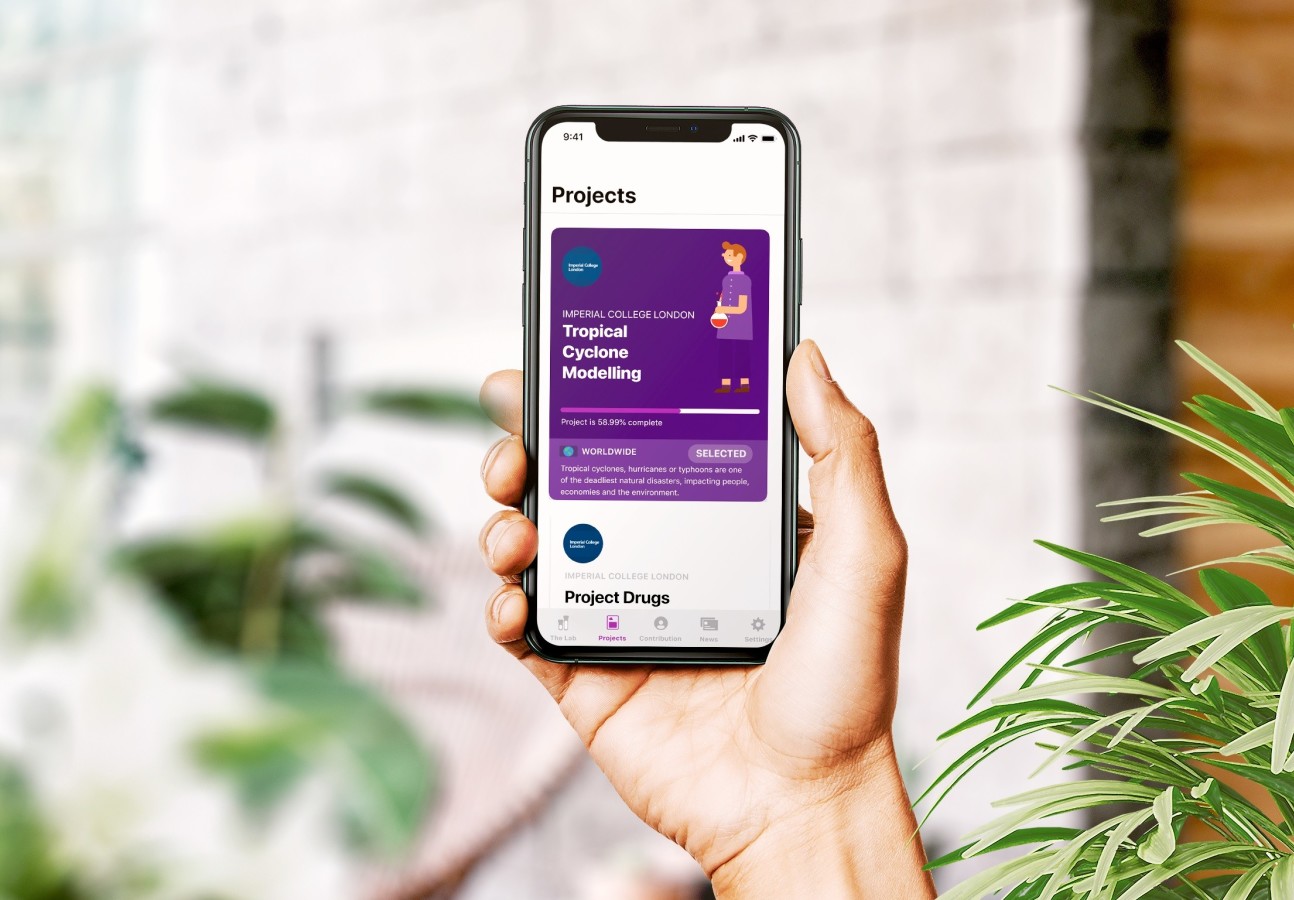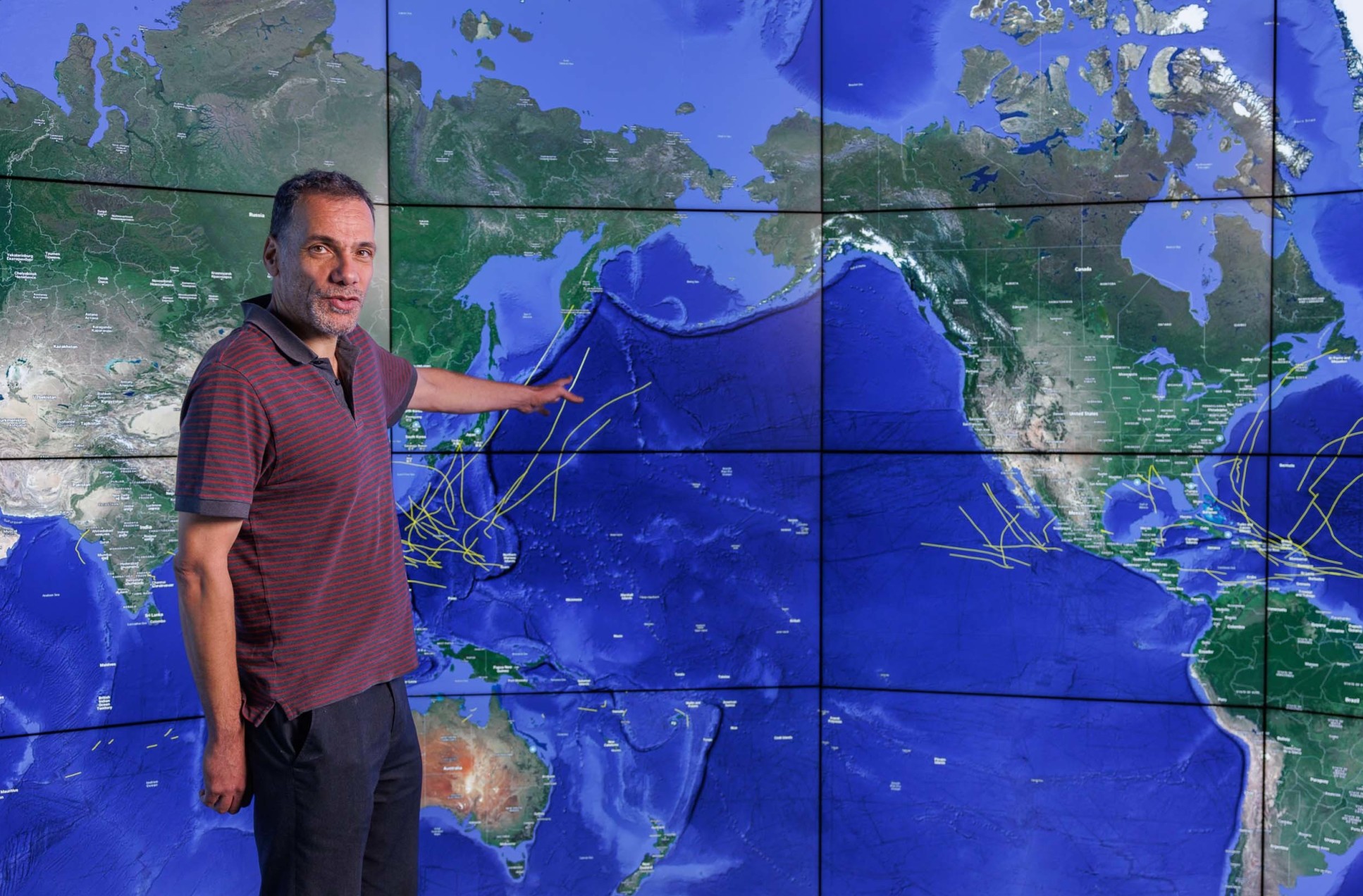Smartphone users to help simulate cyclones and predict effects of climate change
Imperial researchers are partnering with the Vodafone Foundation to use the computing power of millions of smartphones to crunch data about cyclones.
Tropical cyclones, including hurricanes and typhoons, affect millions of people and cost billions of dollars in damage yearly. Their destructive power is increasing due to climate change, as the most damaging storms become more frequent.
By simulating extreme weather ... we can help people to better prepare and adapt to some of the worst effects of climate change. Professor Ralf Toumi
However, there are not enough observations of the most devastating cyclones for researchers to predict where they might impact most as they become more common. Globally there are only about six very damaging tropical cyclones every year, and most countries only have reliable observations for less than 40 years.
The Vodafone Foundation’s DreamLab app will help researchers in the Grantham Institute – Climate Change and Environment at Imperial run thousands of models of cyclones across the world to improve cyclone predictions.
Virtual supercomputer
The Vodafone Foundation’s DreamLab app harnesses the computing power of smartphones while their users sleep. With over two million downloads across 17 countries to date, the network of smartphones created by DreamLab is equivalent to a virtual supercomputer capable of processing billions of calculations, without collecting or disclosing any user data.
 In the first phase of the project, the Imperial College Storm Model (IRIS) will be fed with existing historical data on cyclones in different regions of the world. IRIS will simulate many ‘synthetic’ tropical cyclones based on new physical algorithms that generate location, track, and wind speeds.
In the first phase of the project, the Imperial College Storm Model (IRIS) will be fed with existing historical data on cyclones in different regions of the world. IRIS will simulate many ‘synthetic’ tropical cyclones based on new physical algorithms that generate location, track, and wind speeds.
This data will inform the ‘return period’ of categories of storms. For example, a 100-year return period storm refers to a storm that is expected to happen on average every 100 years
From this baseline, the second phase of the project will investigate how these patterns are changing due to climate change, revealing where the most damaging storms are likely to be most frequent in the future.
This data will help scientists and the public to understand the risk of cyclones on communities, and how climate change is worsening their effect around the world. It will be publicly available, unlike much current data, which is privately kept by entities including insurance companies.
Preparing for disaster
Lead researcher of the project Professor Ralf Toumi, Co-Director of the Grantham Institute, said: “This type of detailed data isn’t public now because it can be valuable. But people can only prepare for a disaster if they have some idea how likely it is to happen, and how risky it’ll become in the future. People, cities, and countries all need that information.
“By simulating extreme weather events to understand their effects on communities, we can help people to better prepare and adapt to some of the worst effects of climate change.”

IRIS project PhD student King-Heng Lau, from the Department of Physics at Imperial, has first-hand experience of tropical cyclones and the devastation they can cause. He said: “The most memorable experience I had with a tropical cyclone was when super typhoon Mangkhut struck Hong Kong in 2018. Mangkhut was the most intense typhoon to strike Hong Kong for more than three decades and brought widespread disruption to the city.
“Many buildings, including my own home, swayed in the wind; some had their glass windows shattered. Roads all over the city were blocked by fallen trees, which brought the public transit system to a halt. Most remarkably, Mangkhut brought a power storm surge which led to severe flooding in many seaside residences.”
Andrew Dunnett, Director at Vodafone Foundation, said: “Climate change and extreme weather are one of the greatest challenges we face. By lending their power to create this massive public database, smartphone users across the world can play a key role in helping climate scientists speed up their much-needed research. I’m proud to continue this partnership with Imperial scientists to help solve some of the world’s greatest threats.”
Imperial College London scientists have already used the DreamLab app to accelerate research into COVID-19, long COVID and cancer.
Article text (excluding photos or graphics) © Imperial College London.
Photos and graphics subject to third party copyright used with permission or © Imperial College London.
Reporter
Hayley Dunning
Communications Division